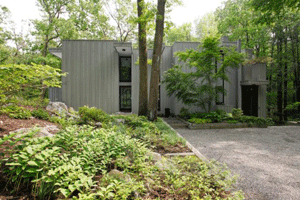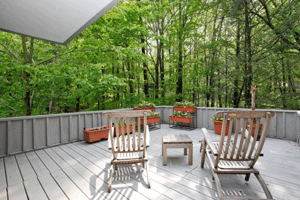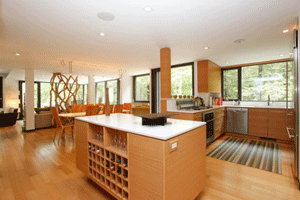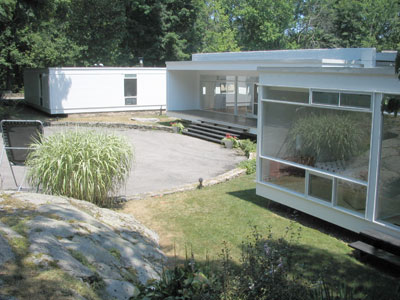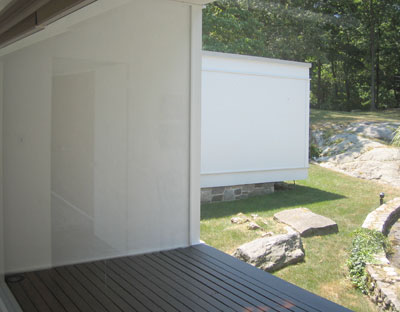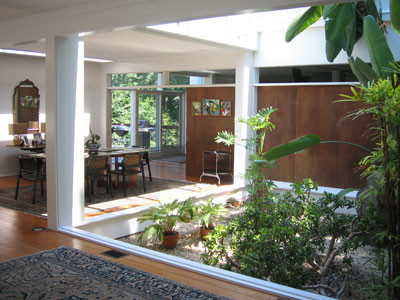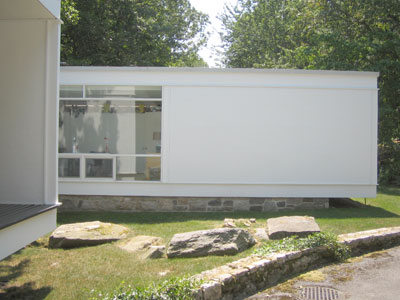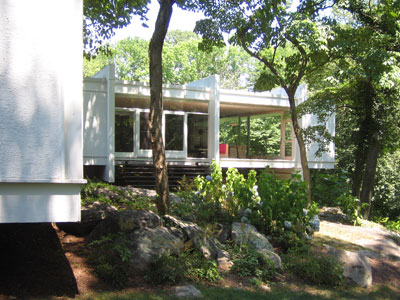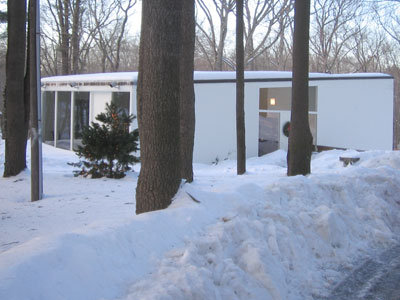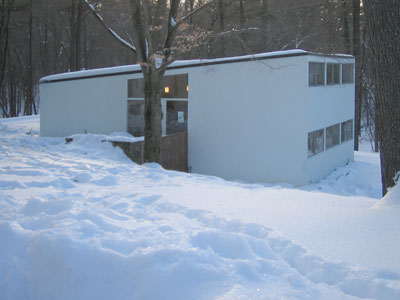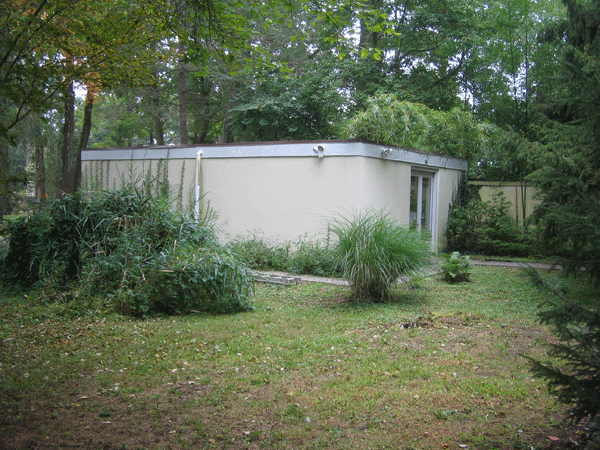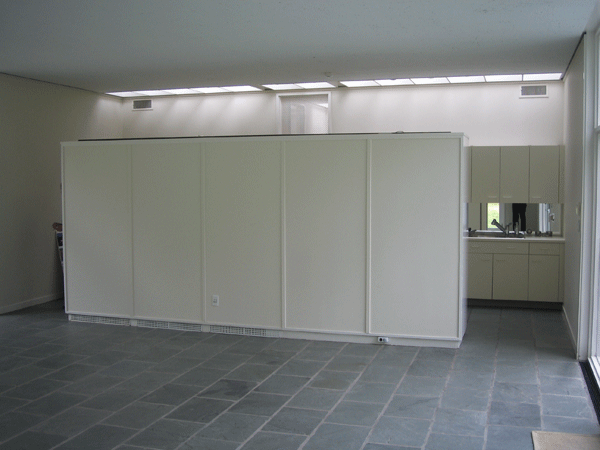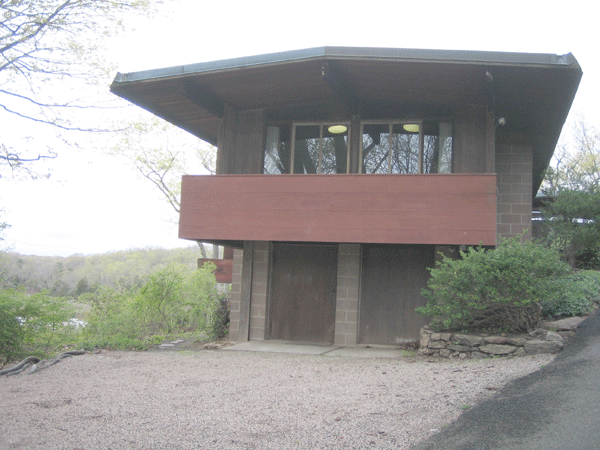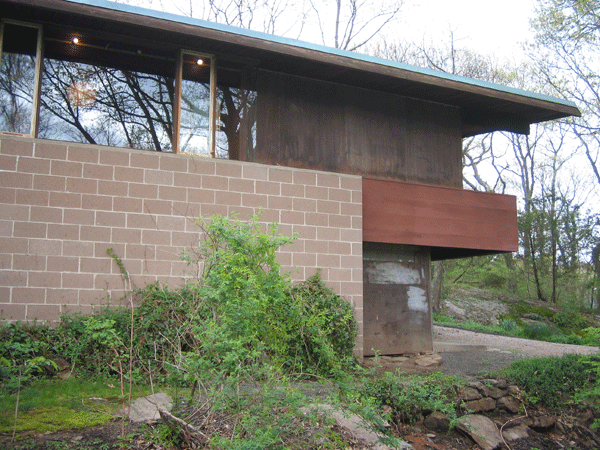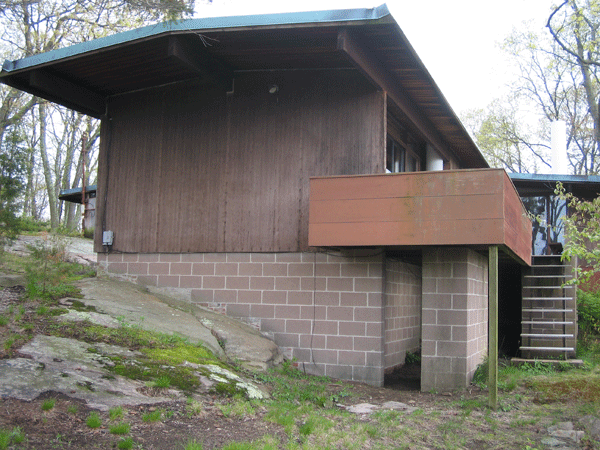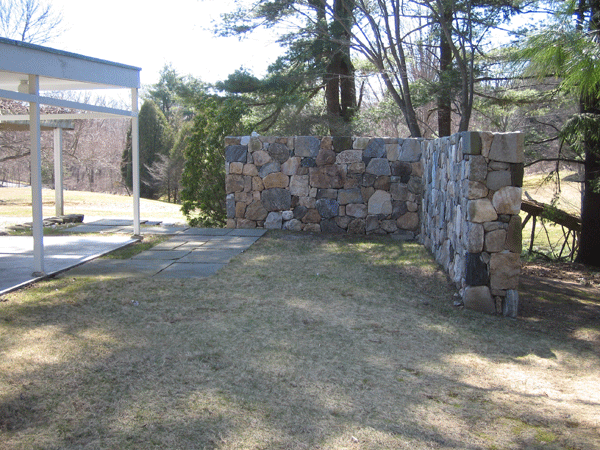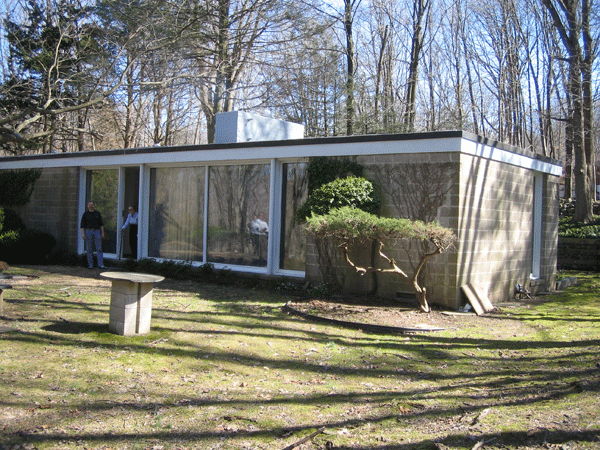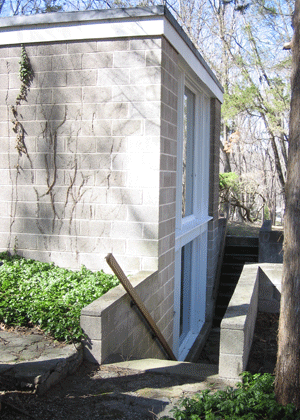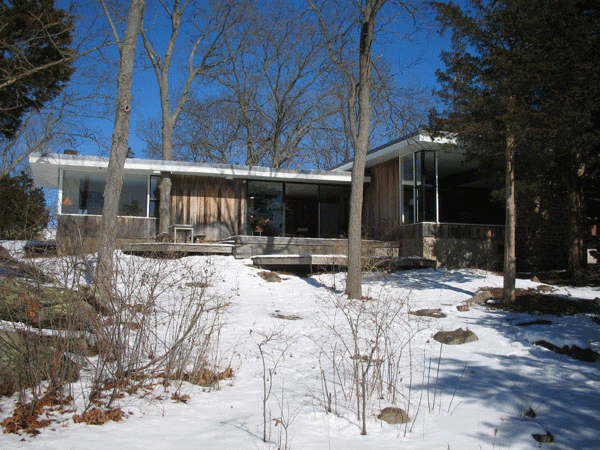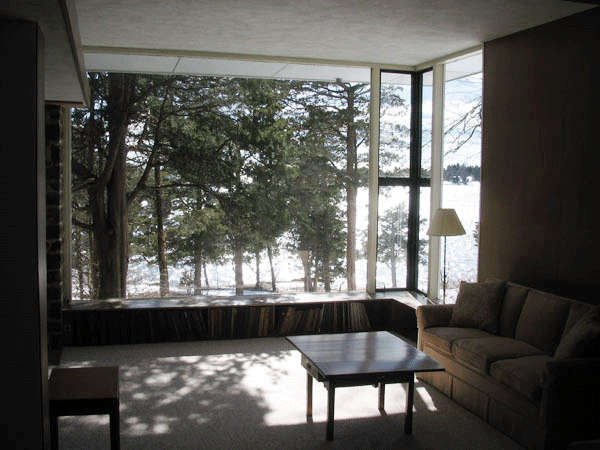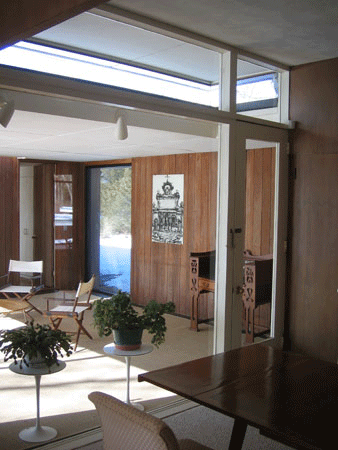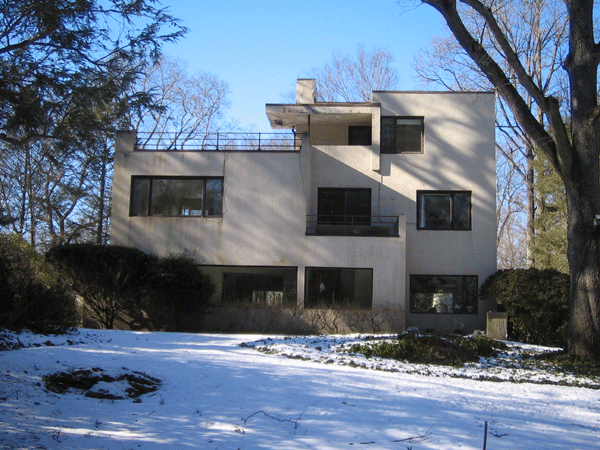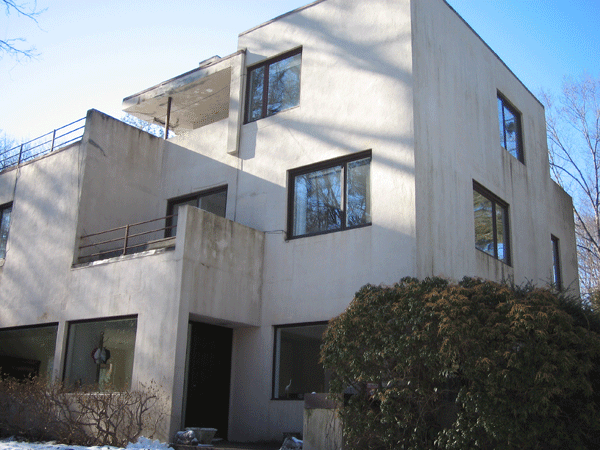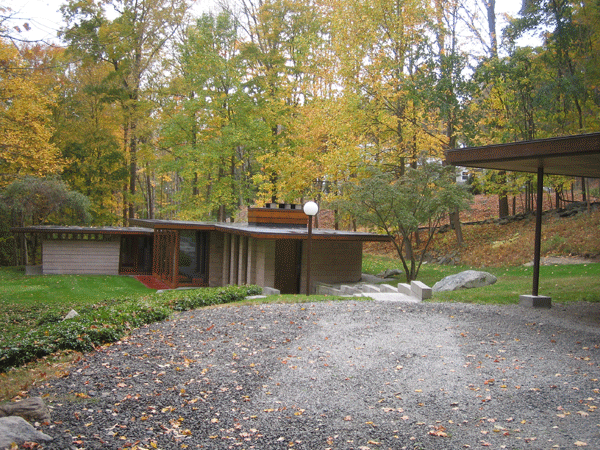The Litt Weekend Home
Garrison, New York
Built 1968, Architect: Frank Dushen
Renovation 2008, Newick Architects
Frank Dushen was a well know local architect who built many modernist houses in the Hudson River valley. The Realtor's description proposes a link to Frank Lloyd Wright and I suppose a case could be made for the way the house hangs over the stream on the downhill side but the influences for the architecture here really lie in the work of Paul Rudolph. You can see the vertical massing and overhanging roof planes in the Yale Art and Architecture building and the Bass Residence and others. The interior is a close packed puzzle of relatively small rooms that link visually to one another even as you have to negotiate the complex floor plan to move from one to another. This is very Rudolph-like but you can also see the roots of this kind of interior organization in the much earlier houses of Adolf Loos. Its interesting to compare these interiors to the more horizontally flowing ones of any of the midcentury examples below.
Our renovation work involved some extensive structural modifications to open up the main living level and the new kitchen and interior finishes generally. There are a number of great things left to do here even though the house has been brought back to a fairly high level of finish.

